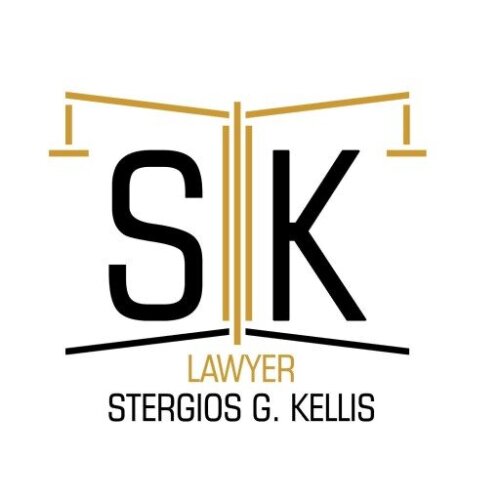Best Housing, Construction & Development Lawyers in Xanthi
Share your needs with us, get contacted by law firms.
Free. Takes 2 min.
Free Guide to Hiring a Real Estate Lawyer
List of the best lawyers in Xanthi, Greece
About Housing, Construction & Development Law in Xanthi, Greece
This guide summarizes the legal framework and practical steps for housing, construction and development matters in Xanthi, Greece. Greek building and land-use regulation combines national laws, regional and municipal planning rules, technical standards and sector specific restrictions - for example environmental, forestry and archaeological controls. Local implementation and permit issuance is handled by the Municipality of Xanthi and regional authorities, while registration and property title matters are processed through the Hellenic Cadastre and relevant land registry offices.
The field covers a wide range of matters - buying and selling property, obtaining building permits, performing renovations, subdividing land, managing construction contracts, resolving defects or neighbour disputes, complying with energy performance rules and addressing enforcement for illegal constructions. Because many steps require licensed professionals and contact with multiple public bodies, having legal advice that understands local practice in Xanthi and national law can save time and reduce risk.
Why You May Need a Lawyer
People commonly seek a lawyer for housing, construction and development matters in Xanthi for these reasons:
- Buying or selling property - to carry out title due diligence, confirm encumbrances, prepare and review sale-purchase contracts and complete transfer formalities at the notary and land registry or cadastre.
- Obtaining building permits and approvals - to ensure submitted documentation is legally adequate, to challenge refusals or to correct irregularities.
- Renovations and conversions - to confirm whether proposed works need permits, to draft or review construction contracts and to handle disputes with contractors or neighbours.
- New development projects - to manage zoning queries, environmental and forestry clearances, archaeological checks, land assembly and permitting processes.
- Construction disputes - including contract breaches, defects, delays, warranty claims and claims against contractors, consultants or developers.
- Enforcement and regularization - to respond to enforcement notices, fines or demolition orders and to explore options for legalizing older unpermitted works when possible.
- Financing and security - to structure mortgage documents, negotiate lender conditions and ensure proper registration of security interests.
- Administrative appeals and court litigation - to challenge administrative decisions at the administrative courts, or to litigate property disputes in civil courts.
Local Laws Overview
Key legal and administrative elements to understand in Xanthi are:
- Zoning and Urban Planning - Municipal urban plans and zoning maps determine permitted uses and development parameters. Zoning defines residential, commercial, industrial and agricultural areas and establishes rules on coverage ratio, floor area ratio, building height and setbacks.
- Building Permits and Technical Controls - Most works need an approved building permit issued by the municipal planning or building authority. Applications are prepared and signed by licensed architects and engineers and include plans, structural calculations and technical reports. Small or interior works may require a simplified procedure or a professional declaration rather than a full permit - check with the local authority.
- Hellenic Cadastre and Land Registry - Property rights and transactions are registered with the Cadastre where coverage exists or with the older land registry where cadastral registration is not completed. Title verification, cadastral extracts and up-to-date maps are essential before purchase or development.
- Environmental and Forestry Rules - Projects affecting protected areas, waterways, wetlands or forests will need environmental permits or forestry consents. Larger developments may require an Environmental Impact Assessment or an environmental study.
- Archaeological Controls - Where work may affect archaeological sites, the Archaeological Service can require surveys, supervision and specific mitigation measures. Planning permission can be delayed or conditioned based on archaeological findings.
- Energy Performance and Safety - Energy performance certificates for buildings and energy efficiency requirements are mandatory for most transactions and for issuing permits. Structural safety standards and seismic design rules are enforced in construction documentation.
- Professional and Technical Regulation - Architects and engineers registered with the Technical Chamber of Greece must sign and stamp project documentation. Their professional responsibility and liability are part of the legal framework for building projects.
- Enforcement, Sanctions and Regularization - Illegal or unpermitted construction can lead to fines, mandatory corrective orders or demolition. From time to time the state has offered regularization programs for older illegal works, but participation and eligibility vary.
- Tax and Transfer Rules - Property purchases trigger transfer taxes or VAT depending on the nature of the transaction, as well as property taxation such as ENFIA. Building projects may also involve different VAT treatments for new versus resale properties.
Frequently Asked Questions
Do I always need a building permit to carry out works in Xanthi?
Not always. Major works, additions, structural changes and changes of use typically require a full building permit. Minor interior works or simple maintenance may be covered by a simplified declaration signed by a licensed professional. Always check with the Municipality of Xanthi or a local architect before starting work - unpermitted works can lead to fines or orders to dismantle.
How do I check the title and encumbrances on a property in Xanthi?
Ask for an up-to-date extract from the Hellenic Cadastre or the local land registry office. A lawyer will commonly obtain a title search to identify mortgages, liens, easements and other encumbrances. For properties still in the older registry system, a careful search and examination of past deeds is necessary.
What documents do I need to apply for a building permit?
Typical documents include proof of ownership, certified architectural plans, structural calculations, topographic survey, energy performance study, soil and stability reports when required, and professional certifications from architects and engineers. Specific projects may require additional environmental, forestry or archaeological certificates.
How long does the building permit process usually take?
Processing times vary with project complexity and local workload. Small permits may be processed in a few weeks, while larger projects that require environmental or sectoral approvals can take many months. Delays often arise when additional information or corrections are requested by authorities.
What happens if construction is carried out without a permit?
Authorities can impose fines, order corrective measures or order demolition of illegal structures. The exact consequences depend on the nature and scale of the violation. In some cases regularization may be possible, but this is subject to specific criteria and penalty payments. Legal advice is essential when you receive an enforcement notice.
Who is responsible for construction defects - the contractor or the owner?
Responsibility depends on the contract terms and the defect type. Contractors and designers typically have contractual and statutory liability for defects caused by poor workmanship or non compliance with standards. Owners also have duties - for example to provide correct information and to supervise where required. Warranty periods may apply under Greek law.
Can I challenge a municipal planning decision in Xanthi?
Yes. Administrative acts by municipal or regional authorities can be challenged through administrative procedures and, if necessary, administrative courts. Time limits for appeals can be short. A lawyer experienced in administrative law can advise on the best route and assist with appeals.
Do I need a lawyer to buy property in Xanthi?
While not strictly mandatory, hiring a lawyer is strongly recommended. A lawyer carries out title due diligence, prepares or reviews the sale contract, ensures correct transfer formalities before a notary and assists with tax and registration matters - reducing the risk of future disputes or title problems.
How does the Hellenic Cadastre affect property transactions in Xanthi?
Cadastral registration clarifies ownership, boundaries and any encumbrances. If a property is already registered in the Cadastre, transfers and mortgages are recorded there. Where registration is incomplete, additional checks and potential rectification may be necessary. Legal advice helps ensure safe conveyancing and proper registration.
What should I do if a neighbour builds close to or on my boundary?
Start by checking official boundary documents and cadastral maps. Try to resolve the issue amicably through negotiation or mediation. If that fails, a lawyer can help gather technical evidence, send formal notices, and if necessary commence civil or administrative proceedings to protect your rights and seek remedies such as removal of the encroachment or compensation.
Additional Resources
When you are dealing with housing, construction and development in Xanthi, the following types of bodies and organizations are helpful to contact or consult:
- Municipality of Xanthi - for local planning, permits and municipal zoning maps.
- Regional Unit of Xanthi and the Region of Eastern Macedonia and Thrace - for regional planning and certain sectoral approvals.
- Hellenic Cadastre - for title registration, cadastral extracts and boundary maps.
- Local Archaeological Service - for archaeological surveys and clearance where relevant.
- Forest and Environmental Authorities - for forestry approvals and environmental permits.
- Technical Chamber of Greece - for lists of licensed architects and engineers and professional standards.
- Bar Association of Xanthi - to find local lawyers experienced in property, construction and administrative law.
- Notaries and licensed surveyors - for conveyancing and accurate topographic and cadastral work.
- Tax authorities - for information on property transfer tax, VAT treatment and ongoing property taxation obligations.
Next Steps
If you need legal assistance in Xanthi for a housing, construction or development issue, follow these practical steps:
- Gather your documents - title deeds, any existing permits, cadastral extracts, plans, contracts and correspondence with authorities or contractors.
- Seek an initial consultation - contact a lawyer who specialises in property, construction and administrative law in Xanthi. Ask about their local experience, fee structure and estimated timeline.
- Obtain technical reports - if you are planning works or facing a dispute, get a licensed architect or engineer to prepare plans, structural reports, topographic surveys and cost estimates. These are often necessary for legal assessment.
- Assess risks and options - a lawyer will advise whether you should negotiate, seek administrative remedies, initiate court proceedings or begin regularization procedures when possible.
- Follow procedural deadlines - administrative appeals and certain defenses have strict time limits. Engage legal counsel early to preserve your rights.
- Consider alternative dispute resolution - mediation or arbitration can be faster and less costly than litigation for some construction disputes.
- Keep a clear communication record - retain copies of all correspondence, permits, contracts and invoices. Clear documentation helps legal case preparation and demonstrates compliance.
Getting local legal counsel early, and combining legal advice with qualified technical support, is the most reliable way to navigate housing, construction and development matters in Xanthi. A local lawyer will help you understand applicable rules, manage interactions with authorities and protect your rights throughout the process.
Lawzana helps you find the best lawyers and law firms in Xanthi through a curated and pre-screened list of qualified legal professionals. Our platform offers rankings and detailed profiles of attorneys and law firms, allowing you to compare based on practice areas, including Housing, Construction & Development, experience, and client feedback.
Each profile includes a description of the firm's areas of practice, client reviews, team members and partners, year of establishment, spoken languages, office locations, contact information, social media presence, and any published articles or resources. Most firms on our platform speak English and are experienced in both local and international legal matters.
Get a quote from top-rated law firms in Xanthi, Greece — quickly, securely, and without unnecessary hassle.
Disclaimer:
The information provided on this page is for general informational purposes only and does not constitute legal advice. While we strive to ensure the accuracy and relevance of the content, legal information may change over time, and interpretations of the law can vary. You should always consult with a qualified legal professional for advice specific to your situation.
We disclaim all liability for actions taken or not taken based on the content of this page. If you believe any information is incorrect or outdated, please contact us, and we will review and update it where appropriate.











